

|
BOOKS serve to stimulate our intellectual capacities and often to touch our deeper feelings. While reading we can experience a widening of the mind, a new opening in the heart, or a moment of psychic recognition. Not all books achieve these possibilities, but such an aspiration is often present and can make the reading experience a vehicle for progress and growth of consciousness.
The next book is Savitri: The Golden Bridge, the Wonderful Fire, an introduction to Sri Aurobindo’s epic poem by the noted scholar and lecturer Mangesh V. Nadkarni. This series of articles was written for the e-journal Next Future and the author’s approach here is very similar to that of his well-attended study camps on Savitri. The aim is to give the reader a rounded experience of the poem: a basic understanding of its meaning and structure, a note on its context in relation to the legend from the Mahabharata, an exploration of themes consonant with Sri Aurobindo’s other major works, and a shared wonder at its poetic power and beauty. The series ended with the passing of Dr Nadkarni in 2007. The last installment published describes the first part of Book XI, Savitri’s plea that the divine boons offered to her be granted instead for earth and all the men and women living on it. Here is a passage from that article:
Chapters 48 and 49 are transcripts of talks given in 2002 and 2003 that summarise Books XI and XII and give a succinct overview of the entire poem, thus rounding off the introduction that Dr Nadkarni could not finish for the Next Future series. The third book, Integral Philosophy of Sri Aurobindo by Aparna Banerjee, is a collection of essays that bring into focus some of the important themes in the socio-political thought and philosophy of Sri Aurobindo. The author shows that Sri Aurobindo’s commitment to human freedom and his conviction of an inevitable human unity are consistently reflected in his writings on subjects such as the evolution of the human mind and the social and political structures that develop as part of that evolution, the emergence of the latent faculties in students as the primary focus of education, and the necessity of a radical transformation of man’s nature as the only way to solve his ethical conflicts and achieve progress towards a genuine human unity. | ||||||||||||||||||||||||||||||||||||||||||||||||||
|
| ||||||||||||||||||||||||||||||||||||||||||||||||||
ENGLISH | |
 | Homage to the Service Tree
Recollections, Poems, Paintings and Photographs in Homage to the Service Tree beside the Samadhi of Sri Aurobindo and the Mother |
A reverent tribute to the Service tree that stands beside the Samadhi of Sri Aurobindo and the Mother, this book chronicles the history of how the tree was planted in 1930, its luxuriant growth under the care of the Mother and various Ashram gardeners, and how it weathered several severe storms. Photographs, paintings, personal reminiscences, and poems create for the reader an atmosphere of devotion and service, for which the tree stands as a constant symbol and remembrance. | |
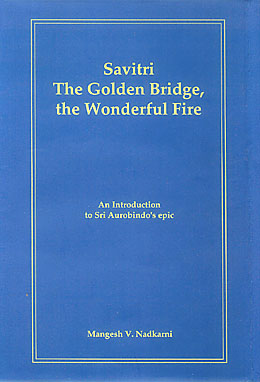 | Savitri: The Golden Bridge, the Wonderful Fire
An Introduction to Sri Aurobindo's epic |
Almost all of these essays on Savitri were first published as monthly instalments in the e-journal Next Future. Dr Nadkarni’s approach has been to acclimatise the reader to the experience of reading Savitri by introducing, canto by canto through each book, selected passages that mark important milestones in the poem. His presentation combines an appreciation of the beauty and mantric power of Sri Aurobindo’s poetry, a discourse that highlights the departures made by Sri Aurobindo from the tale recounted by Vyasa in the Mahabharata in order to emphasise the story’s deeper symbolic meaning, and an exploration of some of the themes running through the poem that are central to Sri Aurobindo’s vision and teachings. The last two essays are transcripts of talks that summarise Books XI and XII and give a succinct overview of the entire poem. | |
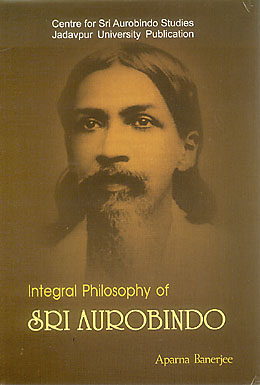 | Integral Philosophy of Sri Aurobindo
— Aparna Banerjee |
This collection of scholarly essays seeks to interpret and elucidate several aspects of Sri Aurobindo’s socio-political philosophy, particularly in regard to nationalism, the ideal of human relations, the concept of a stateless society, and an achievable human unity. Other subjects include the relationship between yoga and knowledge – scientific knowledge versus the inner knowledge by identity of consciousness – and Sri Aurobindo’s philosophy of education, specifically within the context of some debates about the aim of education. The unifying thread in these studies is the integral nature of Sri Aurobindo’s thought and his emphasis on the evolution of consciousness as central to understanding man’s quest for freedom and unity. | |
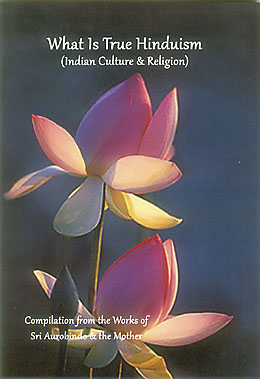 | What is True Hinduism
Indian Culture and Religion |
| |
FRENCH | |
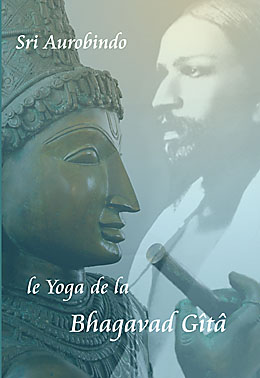 | Le Yoga de la Bhagavad Gita
Traduction commentée |
Le Yoga de la Bhagavad Gîtâ, présenté par Philipe B. Saint-Hilaire (Pavitra), avec, en introduction, des extraits des premiers chapitres des Essais sur la Gîtâ de Sri Aurobindo, est un livre important pour tous ceux qui veulent découvrir ou redécouvrir, non seulement l’un des textes les plus riches et les plus beaux de la littérature spirituelle de l’Inde, mais aussi ce qui constitue les fondements du Yoga intégral de Sri Aurobindo. La Gîtâ met en scène le dialogue entre Arjuna, l’homme le plus héroïque et le plus représentatif de l’idéal de son temps, et Shri Krishna, son aurige et le Divin incarné sur le « champ de bataille de la vie ». C’est là, au cœur d’une guerre fratricide, qu’Arjuna se trouve confronté à une épreuve qui va bouleverser les fondements mêmes de sa foi, de son action et de sa vie. Et c’est là aussi que Shrî Krishna lui révélera le « Suprême Secret ». Ce dialogue répond à nos propres interrogations en ce début de siècle où émergent, une fois de plus, une nouvelle vision du monde et une nouvelle étape dans l’« évolution spirituelle de l’humanité ». | |
HINDI | |
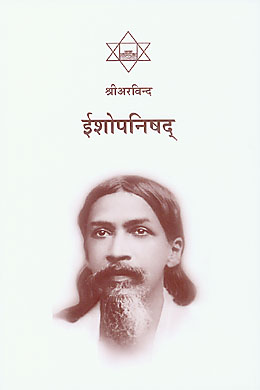 | Ishopanishad
— Sri Aravind |
Hindi translation of Isha Upanishad This book contains Sri Aurobindo's final translation and analysis of the Isha Upanishad. In his definitive commentary on this important Vedantic scripture, he presents its central idea, which is a reconciliation and harmony of fundamental opposites, and shows how in its verses one can discover the resolution of such "pairs of opposites" such as God and Nature, renunciation and enjoyment, action and freedom, the active and inactive Brahman, and works and knowledge. | |
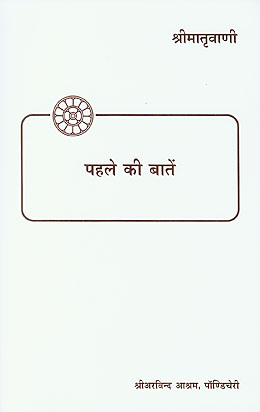 | Pahale ki Baten
— Sri Mataji |
Hindi translation of Words of Long Ago (volume 2 of the Collected Works of the Mother) | |
BENGALI | |
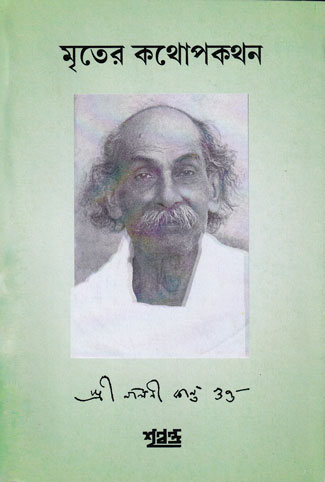 | Mriter Kathopakathan
— Nolini Kanta Gupta |
These imagined conversations between famous historical figures, such as Akbar and Aurangzab, Chandragupta and Asoka, and Buddha, Lao-Tze and Kung-fu-tze, are in the nature of debates on the ideals espoused by each during their lifetimes. Sri Aurobindo wrote the first five in English, Sister Nivedita the second three in English, and these have been translated into Bengali by Nolini Kanta Gupta. The remaining thirteen conversations were written by Nolini Kanta Gupta. | |
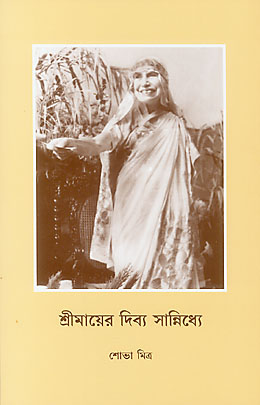 | Sri Mayer Dibya Sannidhye
— Shobha Mitra |
| |
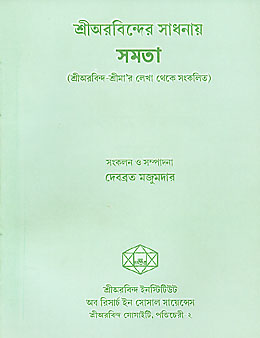 | Sri Aurobinder Sadhanaye Samata
— Debabrata Majumdar |
| |
TELUGU | |
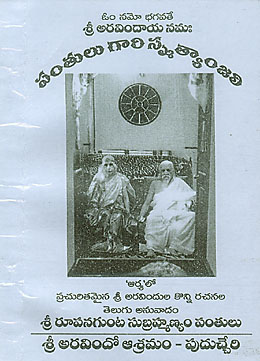 | Pantulugari Smrityanjali
— Prachurithamina Sri Aravindula konni rachanalu |
| |
You have received this as a subscriber to SABDA eNews. To unsubscribe, click here. To view previous issues of SABDA eNews, visit our Newsletters page.
|